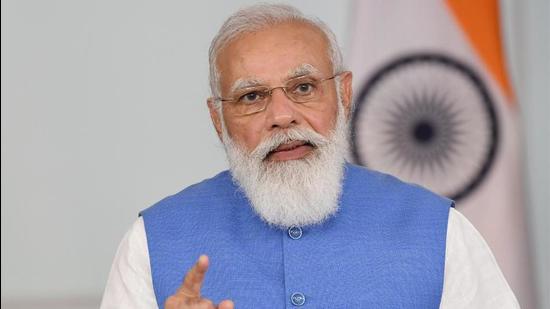How Modi restored the credibility of Indian capitalism
Where the credibility of capitalism has been undermined in the US, its credibility has been burnished in India due to measures such as the insolvency and bankruptcy code (IBC)
The 2008 financial crisis inflicted enormous damage on the United States (US) economy. According to some analysts, the losses are persistent and permanent. In addition to the economic damage and its ill-effects on society, the crisis and its aftermath dealt a far more grievous blow to the US by undermining the credibility of market-based capitalism.

There were multiple causes for the 2008 crisis, but none of the principal actors in the financial services industry or regulatory authorities were held accountable for the colossal damage. Regulatory failure and predatory misconduct were given a free pass, with a tacit bipartisan consensus protecting the elites responsible for the gravest economic downturn since the Great Depression.
This was different from the major financial crises of the preceding two decades — the savings and loan scams of the 1980s led to hundreds of prosecutions, while the 2001 dot-com crash exposed accounting scandals for which several star CEOs and executives went to jail.
This lack of accountability has ultimately undermined the credibility of market-based capitalism in the eyes of the American public, with pro-socialist economic ideas gaining ground, especially with the younger population, which is most scarred by the fallout of the 2008 crisis.
In parallel, India has been seeing a different churning over the last decade. Where the credibility of capitalism has been undermined in the US, its credibility has been burnished in India due to measures such as the insolvency and bankruptcy code (IBC).
Also Read | 100% FDI in telecom sector via automatic route allowed: Union minister
As India enters the fourth decade since the 1991 economic liberalisation, it is important to underscore how important these measures have been to change the practices — and public perception — of private business in India.
Economic liberalisation has been unequivocally beneficial for India, with Gross Domestic Product (GDP) per capita increasing from $562 (constant 2010 US dollars) in 1989 to $2,152 in 2019. But liberalisation brought with it a taint of cronyism and corruption, especially linked to the nationalised banking sector.
The Narendra Modi government inherited a banking sector dominated by public sector banks that were insolvent due to years of lending malpractices and politically influenced deal-making.
The introduction of IBC in 2016 empowered creditors to take defaulting borrowers to task, to the extent that many powerful corporate leaders and their business houses have been all but wiped out, as they have been forced to make good on borrowings or lose their companies and even their personal assets.
Eminent bankers who participated in the frauds have been implicated and their reputations deservedly ruined. In the eyes of the public and taxpayers, poetic justice is being done.
While holding defaulters and money launderers accountable, the Modi government has reduced the sway of public sector banks in lending, with their share in loans declining from 74% in 2015 to 59% by December 2020 — a period where the loan share of privately run banks nearly doubled from 19% to 36%.
After a series of mergers and consolidations, the number of public sector banks now stands at 12, down from 27 in 2015. By giving no quarter to Italian-suit wearing corporate bandits, the credibility of market-based capitalism has been firmly established.
This legitimacy has created political space for India to pursue the next series of economic reforms. Privatisation of public sector enterprises (including banks) is now the official policy of the Union government and a regime of rules-based regulation is taking centre-stage across sectors.
Also Read | All KYC for mobile connections to be digitised: Cabinet clears telecom reforms
The government’s asset monetisation plan must also be welcomed for the same reason, as it reorients the role of the government from asset operator to passive owner, and releases capital for reinvestment into more infrastructure and welfare projects.
It is in this fast-changing context that the Prime Minister (PM)’s February speech in Parliament, extolling the importance of private businesses and upbraiding the bureaucracy for running a fertiliser unit one day and a steel plant the next, must be seen. It is rare to see any Indian public leader, let alone the PM, make an unambiguous clarion call favouring private entrepreneurship.
Modi has set the stage carefully and walked the talk. Tough measures implemented by the government have reaffirmed that there is a distinction between pro-market and pro-business policy. Under the United Progressive Alliance government, crony socialism was confused with liberal capitalism, and votaries of socialism tried to tarnish — and stop — liberalisation by conflating crony misconduct with market capitalism.
Since 2014, India has course-corrected, but the path ahead requires sustained action in areas such as direct tax reforms, agriculture marketing, capital account liberalisation, privatisation and the monetisation of public assets.
With the credibility of capitalism now established, the government has earned the mandate to pursue these structural reforms. Equally, the message to business leaders and society is clear. It will pay to be law-abiding, and there will be severe, inescapable consequences for fraudsters and grifters. India now has a strong foundation on which to pursue liberal economic policies that will enable faster growth.
Rajeev Mantri is co-founder of the India Enterprise Council and author of A New Idea Of India – Individual Rights in a Civilisational State
The views expressed are personal
All Access.
One Subscription.
Get 360° coverage—from daily headlines
to 100 year archives.



HT App & Website







